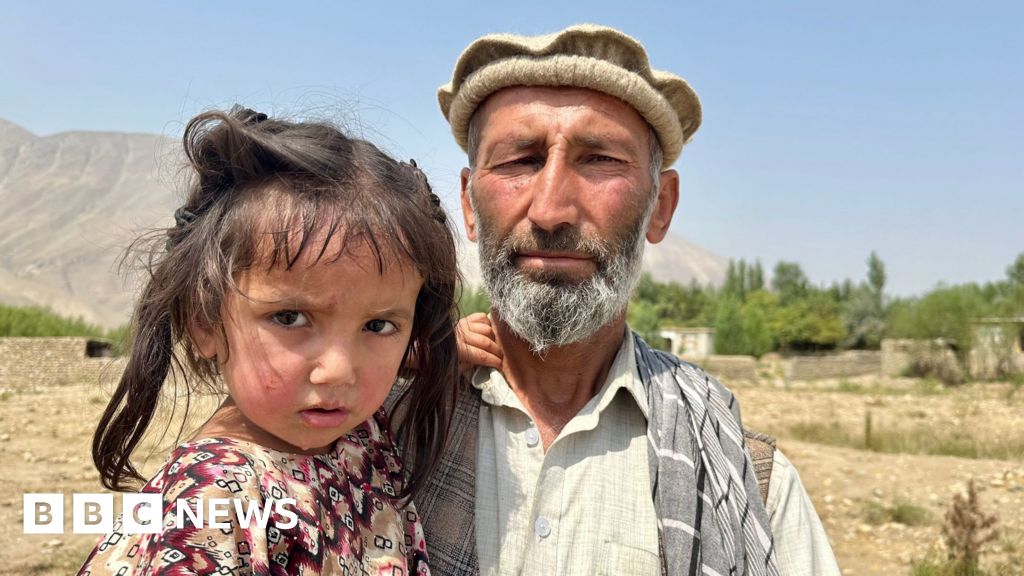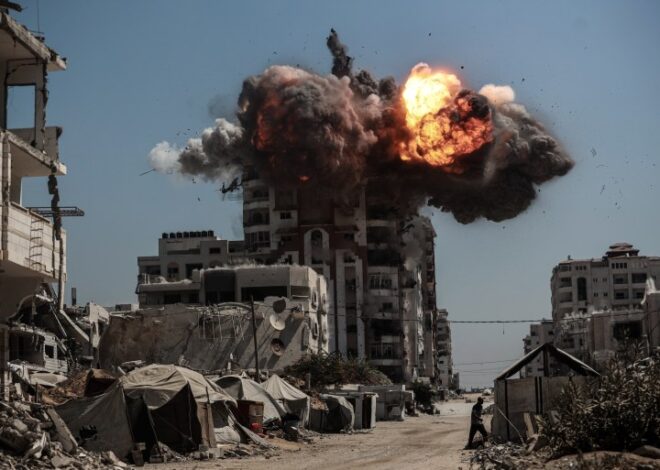
BBC investigates Afghan maternal deaths after US aid cuts

BBC Investigates Afghan Maternal Deaths Following US Aid Cuts
In a tragic tale that underscores the severe consequences of international policy changes, the story of Shahnaz and her husband Abdul highlights the dire situation facing mothers in Afghanistan. After the Trump administration’s abrupt decision to cut nearly all US aid to Afghanistan, maternal healthcare facilities have suffered devastating closures, leading to increased maternal mortality rates.
The Heartbreaking Journey to the Clinic
When Shahnaz went into labor, Abdul was determined to get her to the nearest medical facility, a clinic located in Shesh Pol village, situated about 20 minutes away by taxi. This clinic had been a lifeline for their family, where their two older children were born. However, as they made their way over rough gravel roads, Abdul was unaware that the clinic had shut down due to the funding cuts.
Upon arrival, the couple discovered the clinic closed, leaving them with no medical assistance. “She was in a lot of pain,” Abdul recounted, his expression filled with anguish. With no other options and limited financial resources—renting the taxi cost him 1,000 Afghani (approximately $14.65, or £12.70), a significant portion of his monthly income—Abdul and Shahnaz were forced to return home.
Tragically, Shahnaz delivered their baby girl in the car, but both mother and newborn succumbed shortly after childbirth. “I wept and screamed. My wife and child could’ve been saved if the clinic was open,” Abdul lamented. The loss of his wife and child, who are now buried in Shesh Pol, has left him with a profound sense of grief and regret.
The Impact of US Aid Cuts
The closure of the Shesh Pol clinic is part of a broader trend, with over 400 medical facilities shutting down across Afghanistan following the US aid cuts. These funding reductions came after the dismantling of the US Agency for International Development (USAID), which had been a crucial supporter of maternal healthcare programs in the country.
Historically, Afghanistan has faced high maternal mortality rates, exacerbated by limited access to medical services. The Shesh Pol clinic, despite its modest appearance—a single-storey structure with peeling white paint—was essential for local women, providing trained midwives and basic healthcare services. The clinic typically assisted with around 25-30 deliveries each month, making its closure particularly devastating for the community.
The Trump administration justified the funding cuts by citing concerns that aid was inadvertently benefiting terrorist groups, including the Taliban. The US government claimed that approximately $11 million of US taxpayer money had been misappropriated by partners of USAID, enriching the Taliban-controlled government. However, the Taliban has denied these allegations, asserting that aid is distributed through the UN and NGOs, without government involvement.
Rising Maternal Mortality Rates
The consequences of these aid cuts are stark. The BBC has documented numerous firsthand accounts of women who have died in childbirth since the closure of USAID-supported clinics. In Shesh Pol, villagers pointed to additional graves of women who had also succumbed during childbirth in recent months.
Khan Mohammad, who lost his wife Gul Jan during childbirth, shared a similar story. Gul Jan had relied on the clinic for prenatal check-ups, but when it closed, she faced a harrowing delivery at home. “My children are sad all the time. No one can give them the love of a mother,” he said, expressing the deep void left by her absence.
Ahmad Khan, another grieving father, recounted how his daughter Maidamo died during childbirth after the clinic’s closure. He expressed that if the clinic had been operational, there might have been a chance for survival. “Now we’re left with regret and pain. America did this to us,” he said, tears streaming down his face.
Overwhelmed Healthcare Facilities
As clinics close, the remaining healthcare facilities are becoming increasingly overwhelmed. The main regional hospital in Faizabad, for instance, has seen a dramatic rise in patient numbers, with reports of women sharing beds and inadequate resources to care for them. Dr. Shafiq Hamdard, the hospital’s director, noted that while the hospital has 120 beds, they are currently accommodating 300 to 305 patients.
Maternal deaths have surged, with reports indicating that by August 2023, the number of maternal deaths recorded was equal to that of the entire previous year. Newborn deaths have also risen by approximately one-third in just four months, highlighting the urgent need for medical support.
Challenges Facing Healthcare Workers
Healthcare workers, particularly midwives, are facing insurmountable challenges. Razia Hanifi, the head midwife at the Faizabad hospital, described this year as the toughest in her two-decade career due to overcrowding and a shortage of resources. The situation is further complicated by the Taliban’s restrictions on women’s education, which have halted training programs for midwives and nurses.
Two female students, who wished to remain anonymous, shared their despair after their midwifery training was abruptly stopped. “There is already a shortage of midwives and nurses in Afghanistan. Without more being trained, women will be forced to give birth at home, which will put them at risk,” one of the students lamented.
The Future of Women’s Health in Afghanistan
With access to essential medical services severely restricted, the situation for women in Afghanistan remains precarious. The Taliban’s policies and the withdrawal of international aid have placed the health and lives of countless women at grave risk. As the international community grapples with these complex issues, the stories of Abdul, Khan Mohammad, and Ahmad Khan serve as poignant reminders of the human cost of political decisions.
Key Facts
– Shahnaz died giving birth after the closure of the Shesh Pol clinic due to US aid cuts.
– Over 400 medical facilities in Afghanistan have closed since the cuts were implemented.
– Maternal mortality rates have surged, with reports indicating a potential 50% increase in deaths.
– The main regional hospital in Faizabad is overwhelmed, treating up to 305 patients in a facility designed for 120.
– The Taliban has imposed restrictions on women’s education, including bans on midwifery training.
Source: www.bbc.com


